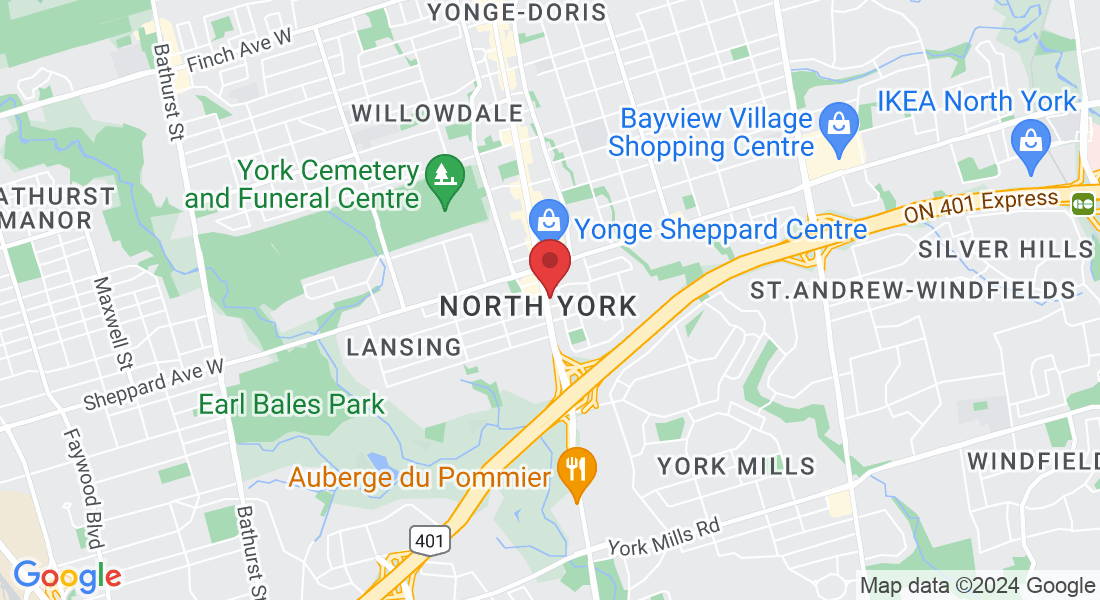PRE-CONSTRUCTION VS. RE-SALE CLOSING COSTS
What are some of the costs associated to closing on your pre-construction property?
When it comes to pre-construction, understanding closing costs is crucial.
While similar to resale transactions, there are key differences you should know.
In most cases, we advise our clients to estimate 8-10% of the purchase price for closing costs and aim to cap charges and fees in your purchase agreement for better budgeting.
TYPES OF PRE-CONSTRUCTION CLOSING COSTS
• Land Transfer Taxes:
Standard taxes on property transfers, including provincial and municipal fees.
These are taxes paid on land transferred to your ownership.
Every real estate purchase must pay a Land Transfer Tax (this is not unique to pre-construction or re-sale property purchases).
Please note that in Toronto, you will have to pay both the Toronto Land Transfer Tax (TLTT) and the Ontario Land Transfer Tax (OLTT). Other municipalities do not have the municipal portion of the Land Transfer Tax.
Click on our resources tab for our Land Transfer Tax Calculator
https://desiredproperties.ca/resources-and-calculators
• Development Charges:
Fees for area development, often capped in your purchase agreement.
These taxes are paid for the continued development of the area of which your property is built.
Various components of this fee may include levies for education, section 37 (for zoning and population density), public arts, parks, and municipal charges.
Essentially, the city charges the builder and the builder passes these costs on to the buyers.
It is very important that these levies and/or charges are ‘capped’ as a part of your Agreement of Purchase and Sale.
A cap on these charges will protect you on the time of closing – you will only be required to pay the capped amount on closing +HST.
Upon you lawyer's contract review, your lawyer can confirm exactly which of these charges and/or levies are capped and can also negotiate on some of these charges – this occurs on a case-by-case basis.
• Legal Fees:
Costs for legal services during the closing process.
• Utility Hook-Ups:
Specific to new condos, covering initial utility installations.
This fee is specific to new construction because you are paying to have utilities such as gas and water set up for the first time.
• Tarion Warranty Enrollment:
Mandatory warranty for new properties.
This fee is subject to HST. This warranty program is an incredible benefit of buying new.
• Realty Taxes/Property Taxes:
Approximately 0.75% of the purchase price in Toronto
Contribution to the Reserve Fund: includes maintenance fees and/or condo fees
• Miscellaneous Costs:
Including deposit administrative fees, HST, and property taxes (approximately 0.75% of the purchase price in Toronto), letter charges, discharge of construction mortgage, site review, electronic registration fees, HST on appliances, and contribution to the Reserve Fund -including maintenance fees and/or condo fees
ALWAYS REVIEW YOUR PURCHASE AND SALE AGREEMENT WITH A LAWYER
Estimating pre-construction closing costs can be complex. There's no set number or fixed percentage of purchase price or set number due to various factors like the condo's price, development charges, and contract specifics.
Your Agreement of Purchase and Sale outlines these costs, but it's wise to have a lawyer review it.
There will be several clauses in the agreement that will list costs and fees that you’ll have to cover at the time of closing.
The lawyers will be able to breakdown the costs and fees to the buyer but they'll also look for anything that may be unusual – these are looked at on a case-by-case basis.
They'll identify standard fees and negotiate the terms of the contract where possible.
Be sure to take your contract to a lawyer who has experience in new condo documents since these differ from the the standard purchase and sale agreement.
TAKE ADVANTAGE OF THE 10-DAY COOLING OFF PERIOD
After signing the purchase agreement, use the 10-day (calendar days) cooling off period to review costs with your lawyer and negotiate terms.
WHEN ARE CLOSING COSTS DUE?
All closing costs are due at final closing and must be paid separately from your mortgage.
These fees are due at the time of closing and can be paid with a bank draft or certified cheque.
STATEMENT OF ADJUSTMENTS & TRUST LEDGER
Prior to the closing meeting, your lawyer will send you a copy of the “Statement of Adjustments,” which will detail the overall breakdown of the costs. Your lawyer can help answer any questions you may have about any of the costs and fees listed.
You will also be sent a “Trust Ledger” that will review how the fees will be distributed on the day of closing and give you the exact amount you will need to bring with you on the date of closing.
HST REBATE
Your final costs may be eligible for an HST rebate.
The HST rebate for purchasers of pre-construction or new construction properties is a refund of a portion of the Harmonized Sales Tax (HST) paid on the purchase price.
In Canada, this rebate is available to buyers who intend to use the property as their primary residence or as a rental property.
The rebate is designed to offset some of the taxes paid on the purchase of a new home.
In some cases, the rebate can be substantial, helping to reduce the overall cost of buying a new construction property.
It's important for buyers to understand the eligibility criteria and application process for the HST rebate, as it can significantly impact the affordability of purchasing a new home.
Consulting with a real estate professional or tax advisor can provide more specific information based on individual circumstances.
INTERIM OCCUPANCY FEES
Closing costs are in addition to interim occupancy fees.
This period allows you to live in or rent out the condo before final closing.
PRE-CONSTRUCTION VS. RE-SALE CLOSING COSTS
How Pre-Construction Differs:
Development charges and utility setups are unique to pre-construction condos.
Utility set-ups and the Tarion Warranty purchases is unique to pre-construction transactions.
Since you will be the first person to live in (or rent out) this residence, you’ll have to pay to get everything set up.
On the bright side, unlike resale transactions you will most likely avoid a land survey fee and an appraisal fee because you’ll be purchasing the property directly from the developer.
Have Questions? Contact Us!
Follow Us!
CONTACT US



Mail
WhatsApp